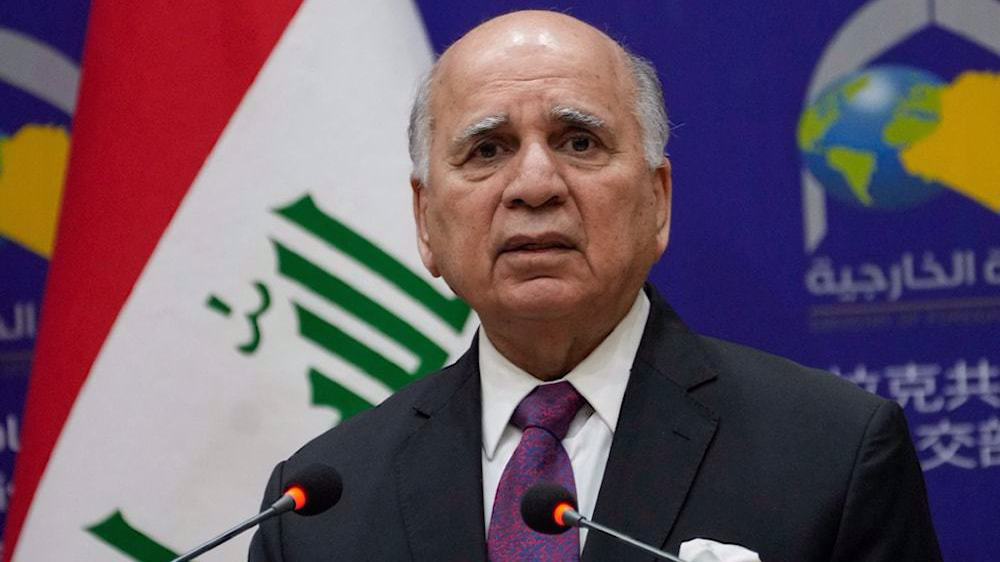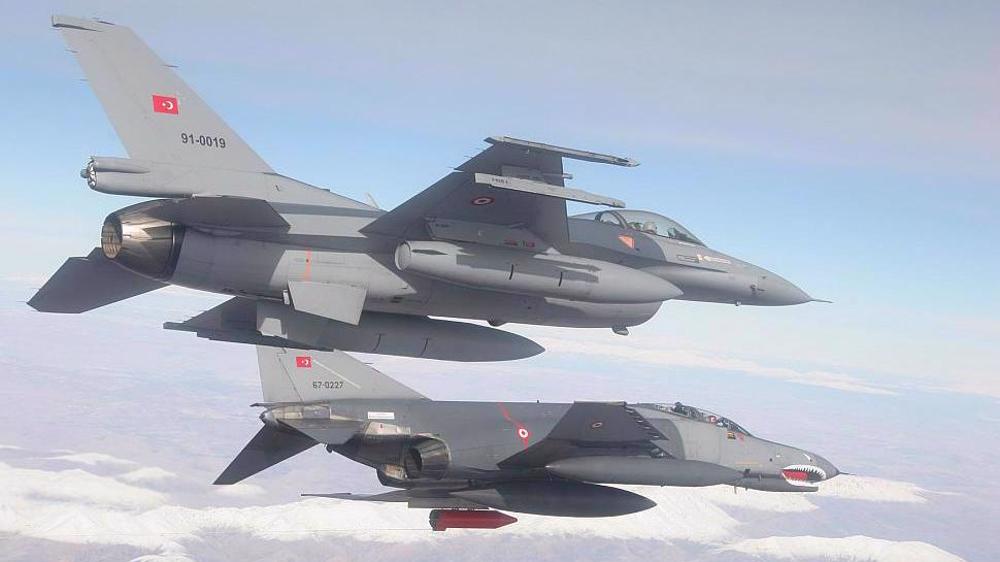US-led coalition forces to withdraw from another military base in Iraq
The US-led military coalition is preparing to evacuate troops from a military base southeast of the Iraqi capital, Baghdad, and hand the facility over to government troops.
Major General Kenneth Ekman, deputy commander of the coalition forces, told reporters during a video press conference on Wednesday that several military bases have already been turned over to Iraqi forces and the Basmaya base -- a large training camp near Baghdad -- is to be handed over to them on Saturday.
Ekman claimed that though Daesh may never be completely eradicated, the group has been significantly diminished from when it controlled swathes of Iraq and Syria just a few years ago.
“What that has allowed us to do is to reduce our footprint here in Iraq. I think over time, what you will see is a slow reduction of US forces,” he added.
The US has already evacuated its troops from several military bases in Iraq.
The presence of US troops in Iraq has been a thorny issue in relations between the two countries, which have been strained in recent months, with Iraqi lawmakers voting to formally demand the withdrawal of American forces.
On July 13, Abu Ali al-Askari, a senior commander of Kata'ib Hezbollah Brigades, whose group is a part of Iraqi Popular Mobilization Units -- more commonly known by the Arabic name Hashd al-Sha’abi -- reiterated the resistance group’s readiness to end the US military presence in Iraq.
Askari stressed that Americans must know that Iraq's decision on the withdrawal of US troops is “irreversible” and that no one can circumvent the will of the Iraqi people.
“The resistance must continue with popular, political, security, and media pressure, with full readiness for wide military action until those killers yield to the people’s will,” Askari wrote in a post published on his Twitter page back then.
“They only understand the language of force … and we are ready for that,” he said, adding “We will come out victorious.”
Anti-US sentiment has been running high in Iraq following the assassination of Lieutenant General Qassem Soleimani, the commander of the Quds Force of Iran's Islamic Revolution Guards Corps, along with Abu Mahdi al-Muhandis, the deputy head of the PMU, and their companions in a US assassination drone airstrike authorized by President Donald Trump near Baghdad International Airport on January 3.
Iraqi lawmakers unanimously approved a bill two days later, demanding the withdrawal of all foreign military forces led by the United States from the country.
The US responded to the move by threatening crippling sanctions against the Arab country.
The troop withdrawal was put to talks between Baghdad and Washington last month, with the US promising to reduce the number of its troops there in the coming month.
Washington also claimed in a statement following the talks “it does not seek nor request permanent bases or a permanent military presence in Iraq.”
Explainer: What makes Iran's Rezvan and Raad loitering munitions prized assets?
VIDEO | Unseen agony: Missing loved ones of genocide in Gaza
Iran cuts gold import tariff to zero
Pezeshkian: Iran determined to develop, boost ties with neighbors
VIDEO | Israel, Hamas ceasefire agreement: Closer than ever
VIDEO | Gaza ceasefire to be put in place under resistance conditions
Hot water and sewage: Palestinians share harrowing tales of torture in Israeli prisons
VIDEO | Thousands evacuated in Ethiopia amid earthquakes, volcanic eruption fears













 This makes it easy to access the Press TV website
This makes it easy to access the Press TV website